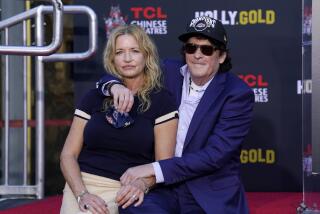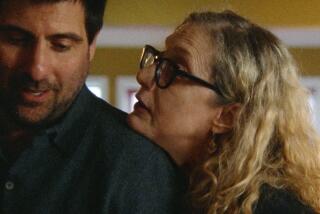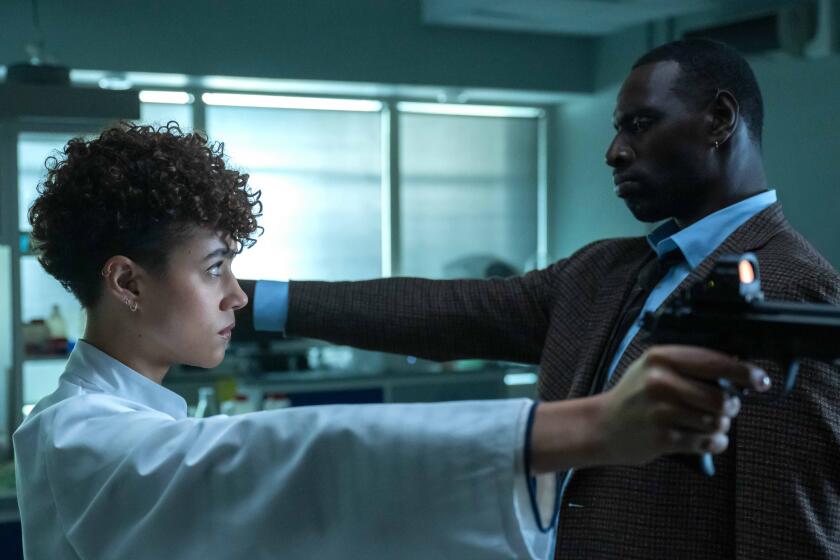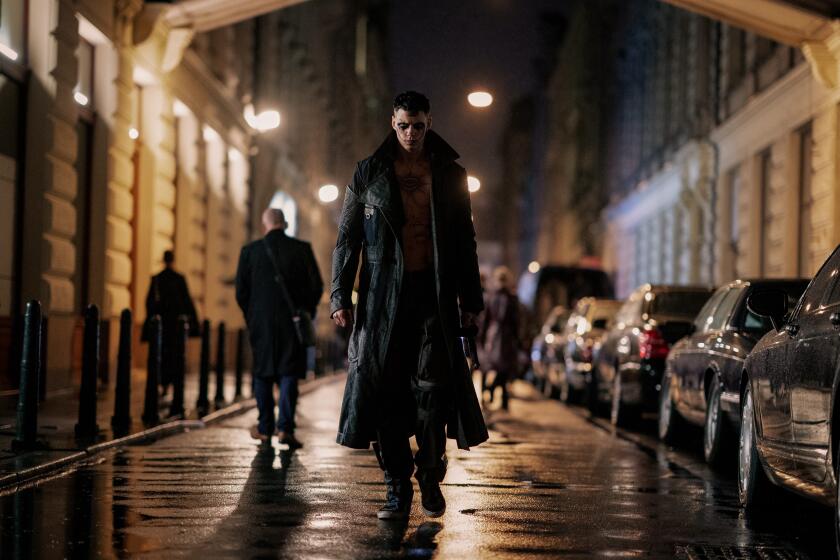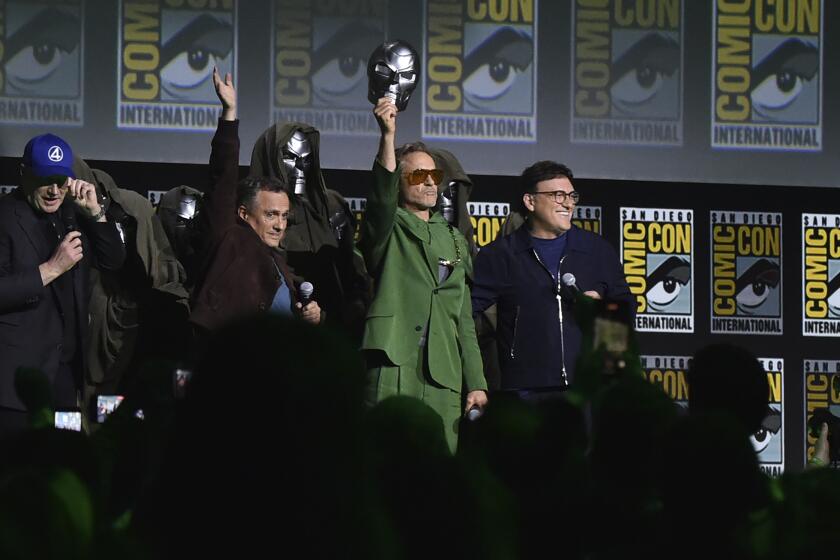Two great actors display their craft
More than 40 years after a dazzling first run that earned a dozen Academy Award nominations, “Becket” is back on the big screen and just in time to cast a fascinating light on this year’s Oscar race.
A fluke of scheduling fate has made a newly restored 35-millimeter print of this 1964 film, costarring a 39-year-old Richard Burton and a 32-year-old Peter O’Toole, available just when a now-74 O’Toole is once again in the heat of a best actor Oscar contest, for his role in “Venus.”
In a year when the big winners were “My Fair Lady” and “Mary Poppins,” the only award “Becket” took was for Edward Anhalt’s adaptation of Jean Anouilh’s Tony-winning play. There were nominations for both Burton and O’Toole (Rex Harrison sneaked in between them to win), as well as for costar John Gielgud, best picture, director, cinematography, art direction and score.
While peripheral elements of “Becket” do show their age, the core of the film’s appeal remains incandescent, and that is the on-screen collaboration between Burton and O’Toole, two of the English-speaking world’s greatest actors working in the vibrant prime of their careers.
In part this collaboration is so successful because the subject matter is compelling and, frankly, so far from what any studio would put into production today. Set in 12th century England and based on the historical record, “Becket” involves not only questions of honor and loyalty but also a savage split between best friends, one of whom happens to be England’s king, over the conflicting rights of church and state. Not exactly an MTV-friendly subject, but there you have it.
Directed by Peter Glenville, who did the stage version, “Becket” opens with King Henry II (O’Toole) making a pilgrimage to Thomas a Becket’s tomb. We soon learn that this man (Burton) had been the king’s closest confidant, his companion in the “drinking and wenching” that took up a good part of his life. What pushed them apart is the business of the rest of the film.
At first Henry draws Becket closer by naming him England’s chancellor. Intrigued by a man who claims to have found nothing to care for, who says “Where honor should be in me is only a void,” Henry, locked in a struggle for primacy with the Catholic Church, next appoints Becket to the post of archbishop of Canterbury.
But rather than give the king the ally he is looking for, the appointment creates a rival. The office changes Becket; against odds it gives him something to believe in, and he makes the kind of principled stand for the rights of the church that the king cannot abide, even in his best friend.
While major stars thrust together on screen often end up undercutting each other, one of the pleasures of “Becket” is how easily and generously these two commanding actors play off each other, each allowing the other the space to make the most of their individual roles.
It is Burton’s brooding Becket, a character who seems to have more emotional potential than his friend, who initially attracts us most, and it is bracing to see a reminder of how fine an actor Burton was before his reputation got all wound up with his relationship with Elizabeth Taylor.
But it is O’Toole’s Henry, his follow-up to “Lawrence of Arabia,” that finally turns out to be the role of the film. He is a tricky and elusive character we shouldn’t like but do, a satyr in royal robes who makes the arrogance of power surprisingly appealing. And he turns out to be, in his own way, more human than Becket, someone unexpectedly capable of being wounded, someone who is capable of playing the subtext of intense male attraction and who means it when he says, “I am your friend, and you are wrong not to love me.”
To see “Venus” and “Becket,” to compare O’Toole then and now, to see what he has kept, what he has gained, what has been lost, is instructive in a way that the opportunity to see both films theatrically only enhances.
Inevitably, now that he is noticeably frail, there is an aspect of power that O’Toole doesn’t attempt anymore. His most famous “Becket” line, his furious demand, “Will no one rid me of this meddlesome priest?” is something he likely could no longer bring off convincingly, and he seems to know it.
On the other hand, so much of what makes this man one of the great film actors of his time -- his great bone structure, grace of movement and alive eyes -- is as visible in “Venus” as in “Becket.” And his age gives more emphasis to a wistfulness about his persona that was apparent in the earlier film but considerably less obvious. No one, then or now, does this kind of evanescent, bittersweet regret better than Peter O’Toole.
“Becket.” Unrated. Running time: 2 hours, 28 minutes. Exclusively at Landmark’s Nuart, 11272 Santa Monica Blvd., West L.A. (310) 281-8223.
More to Read
Only good movies
Get the Indie Focus newsletter, Mark Olsen's weekly guide to the world of cinema.
You may occasionally receive promotional content from the Los Angeles Times.
